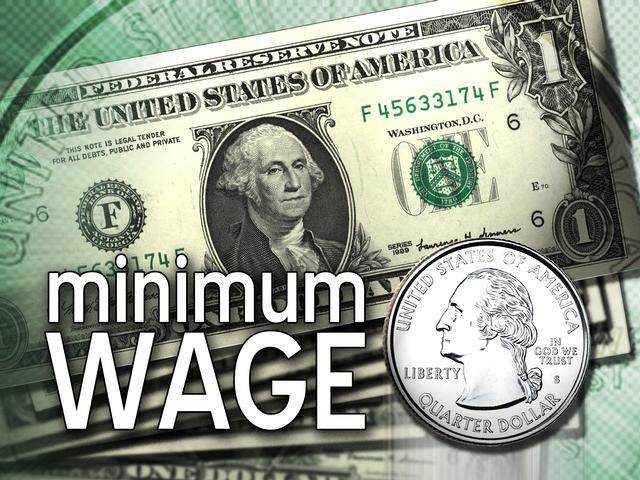What if three different studies on the effects of a minimum wage increase in Los Angeles each came up with a different conclusion — who do you trust? That was a question asked at the Town Hall Los Angeles debate Thursday between Gary Toebben, President and CEO of the Los Angeles Chamber of Commerce and Rusty Hicks, head of the Los Angeles County Federation of Labor, AFL-CIO.
Toebben said trust your experiences — when wages go up speedily, businesses, especially small businesses, have to cut somewhere. If minimum wage is increased there would be fewer jobs (just as the Beacon Economics study sponsored by the Chamber stated, up to 140,000 fewer jobs over five years.)
Hicks said its common sense, if workers have more money they will spend the new money, which will increase the economy and create jobs (46,000 new jobs according to the Economic Roundtable who did its study for the Labor Federation.)
The third study by UC Berkley, done at the behest of the LA City Council, decided the lives of low-wage earners would improve which would overshadow job losses.
Since the dueling studies didn’t offer clarity to observers considering the question of raising the minimum wage perhaps the debaters could break the gridlock. Reflecting the studies they sponsored, the debaters rolled out familiar arguments to buttress their positions.
Hicks argued that increasing the minimum wage for those barely getting by would decrease government subsidies in such things as child care and food stamps saving the taxpayers money. Toebben said implementing a minimum wage increase of 50 percent in three years and 75 percent over 5 years as proposed would slow job growth in half and reduce revenue for city services for low-income families.
Hicks argued that business has claimed job loss as a result of minimum wage increase since the minimum wage came into being in the 1930s and that has not happened. Toebben countered that business will have to compensate for the increased wages in some way. If not layoffs then lack of charitable contributions or reducing advertising for example.
Toebben insisted that he was defending small business, which would be most affected by the increase. “This is all about Main Street, not about Wall Street,” he said.
Hicks conceded that exemptions might be made for some organizations like non-profits, some small businesses or young workers to ease the conversion to a higher minimum wage. The Chamber president said if no accommodation is made Los Angeles will have a reputation of a place not to start a business.
Common ground? Perhaps a small patch of turf, not much more. Figuring out the exemptions and who gets what could be a regulatory nightmare, not to mention a field day for lobbyists.
The minimum wage increase proposals in Los Angeles include Mayor Eric Garcetti’s plan for an increase from $9.00 an hour to $13.25 by 2017. A city council proposal calls for an increase to $15.25 by 2019.
Other major West Coast cities — Seattle, San Francisco, Oakland — have already lifted their minimum wages recently. Could Los Angeles learn from those experiences?
Rusty Hicks said it was too early to measure the true impact but he said there are now more restaurants in San Francisco since the minimum wage law was changed. To which Gary Toebben said restaurants have closed in Oakland because of the minimum wage increase.
The studies didn’t give any clarity to those considering the minimum wage deliberations. The Town Hall debate probably didn’t change too many minds, either.


